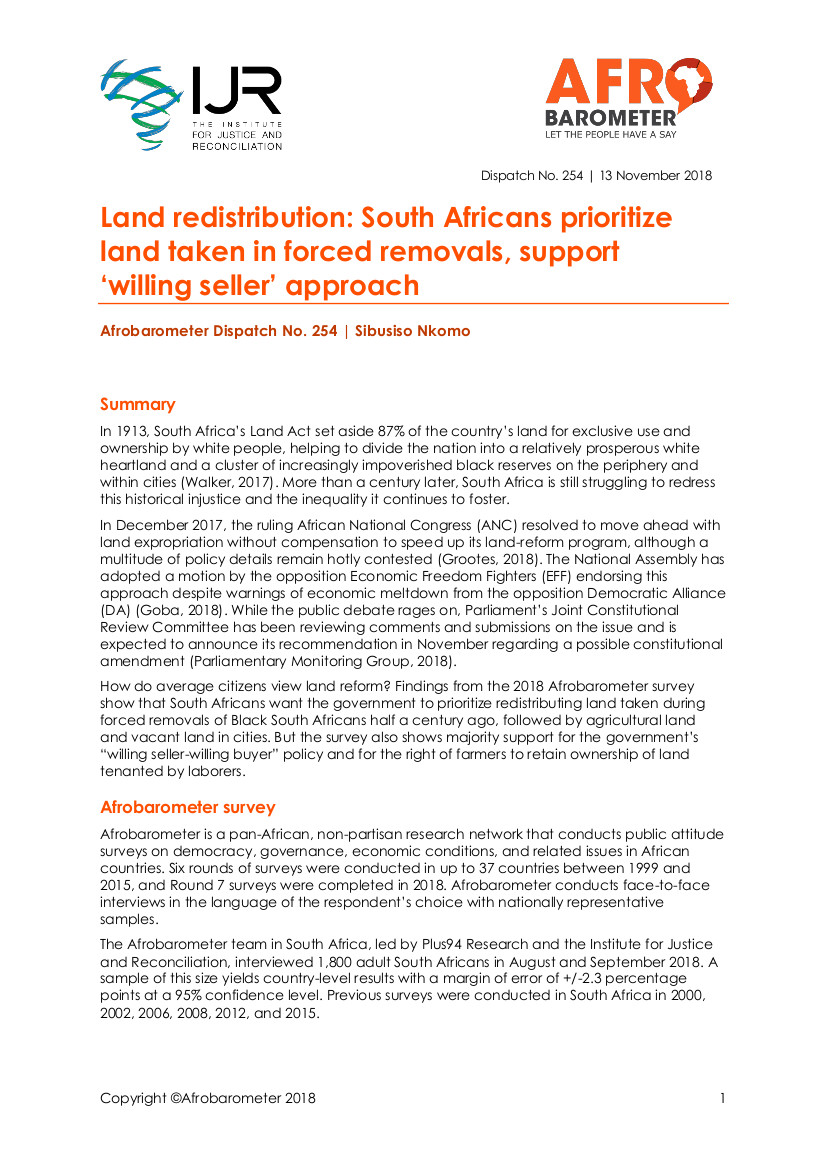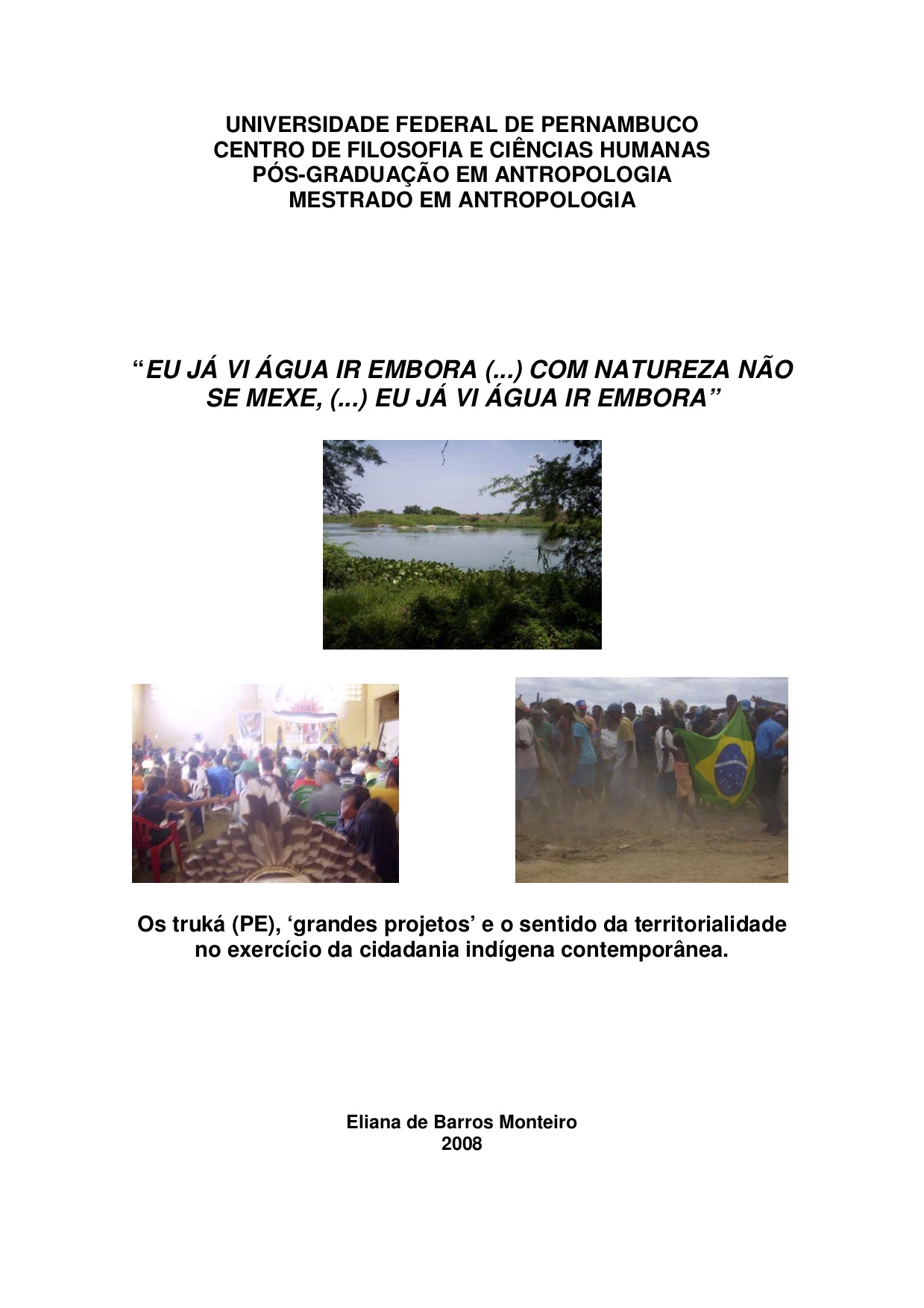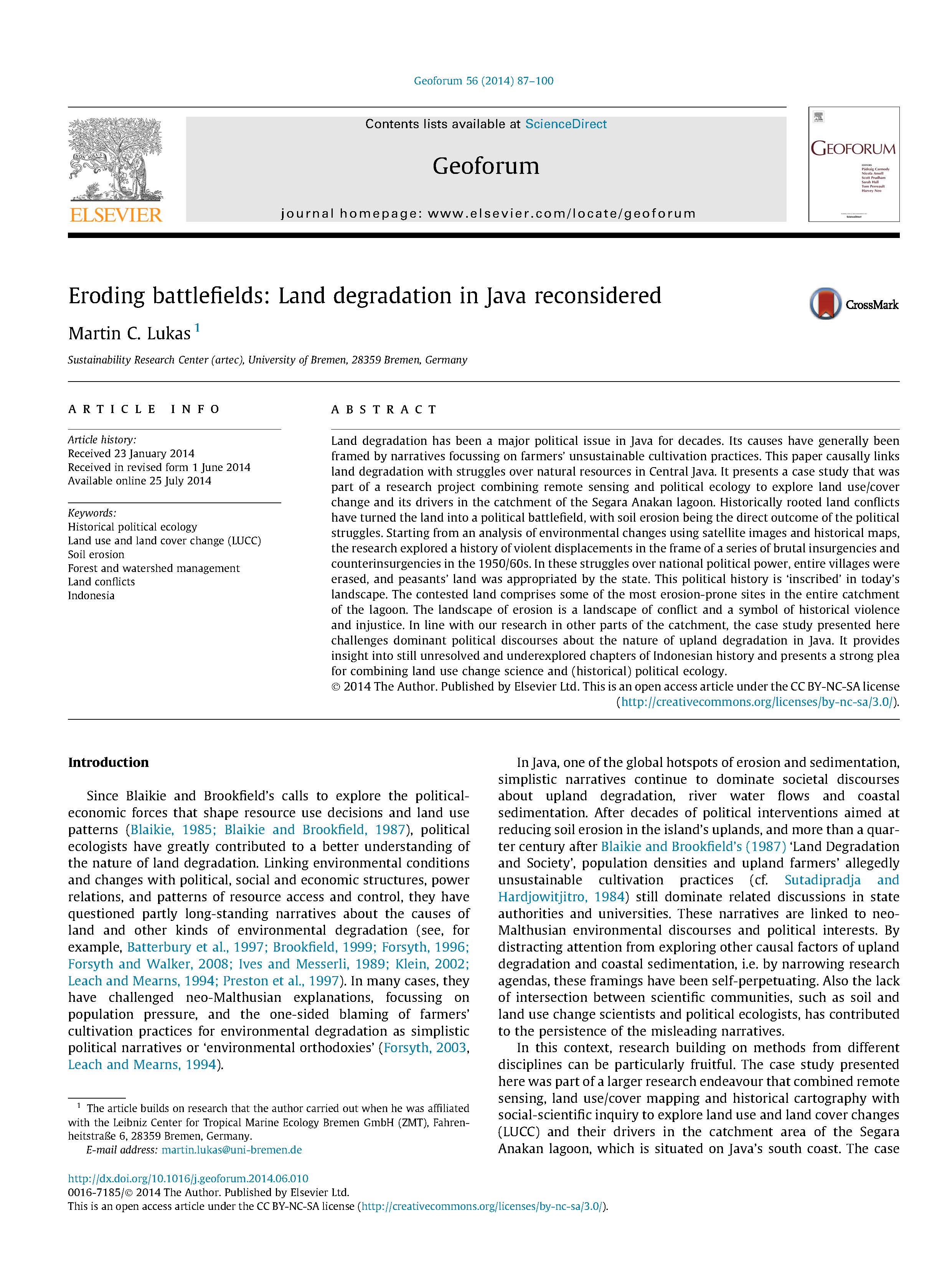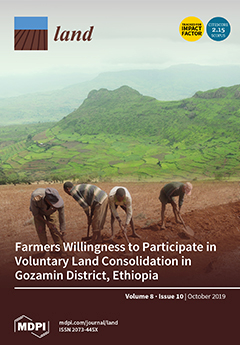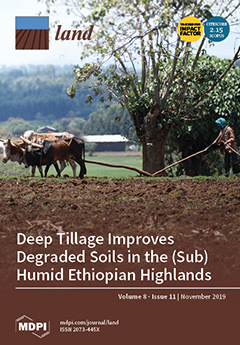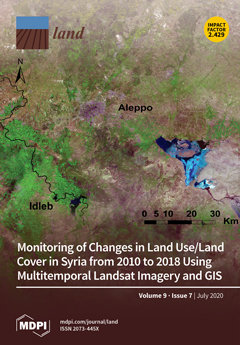Land redistribution: South Africans prioritize land taken in forced removals, support ‘willing seller’ approach
In 1913, South Africa’s Land Act set aside 87% of the country’s land for exclusive use and ownership by white people, helping to divide the nation into a relatively prosperous white heartland and a cluster of increasingly impoverished black reserves on the periphery and within cities (Walker, 2017). More than a century later, South Africa is still struggling to redress this historical injustice and the inequality it continues to foster.

